County in China's Shaanxi transforms ecological resources to green economy
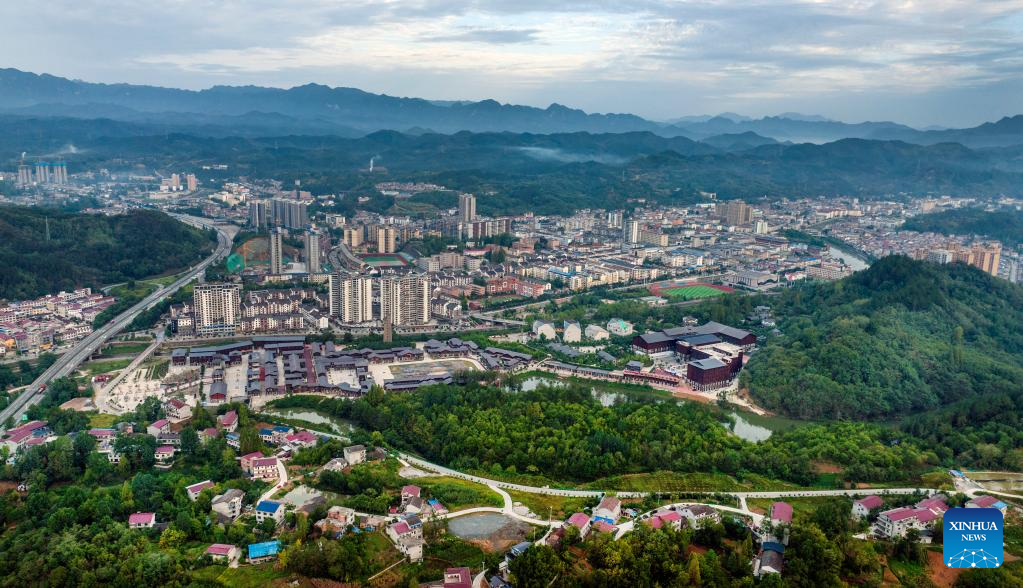
Aerial photo taken on Sept. 6, 2022 shows a view of Ningqiang County, northwest China's Shaanxi Province. As the headwater region of the Hanjiang River, the largest tributary of the Yangtze River, Ningqiang County has closed ten mines and promoted a series of ecological protection projects for environmental protection in recent years. The county has also promoted the production of agricultural products including tea, fruits, vegetables, etc., managing and transforming ecological resources to green economy. (Xinhua/Tao Ming)
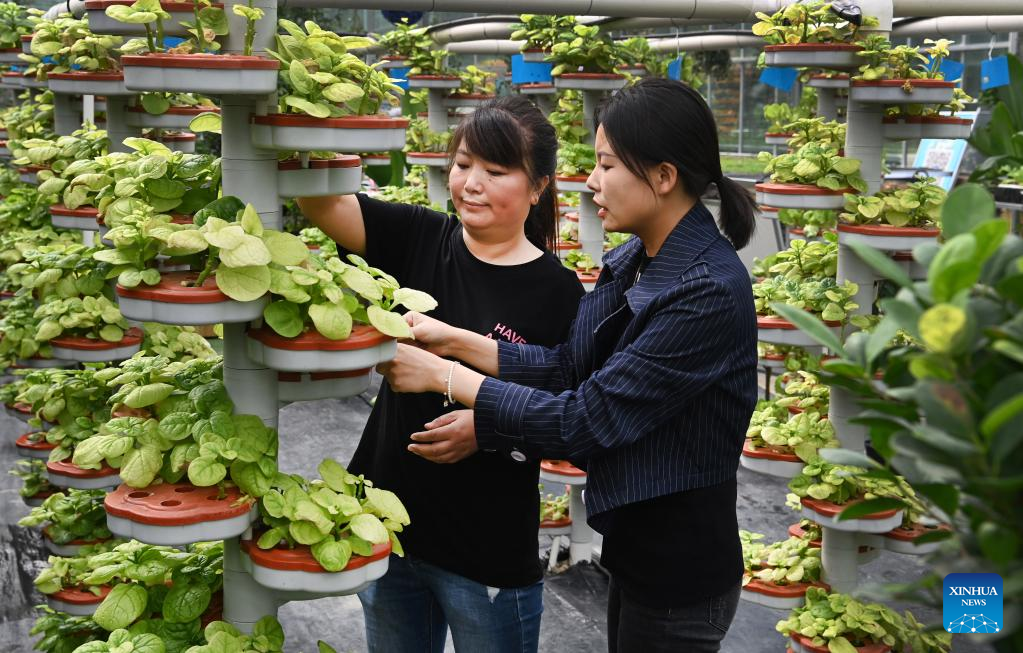
Staff members take care of soilless vegetables in Ningqiang County, northwest China's Shaanxi Province, Sept. 7, 2022. As the headwater region of the Hanjiang River, the largest tributary of the Yangtze River, Ningqiang County has closed ten mines and promoted a series of ecological protection projects for environmental protection in recent years. The county has also promoted the production of agricultural products including tea, fruits, vegetables, etc., managing and transforming ecological resources to green economy. (Xinhua/Tao Ming)
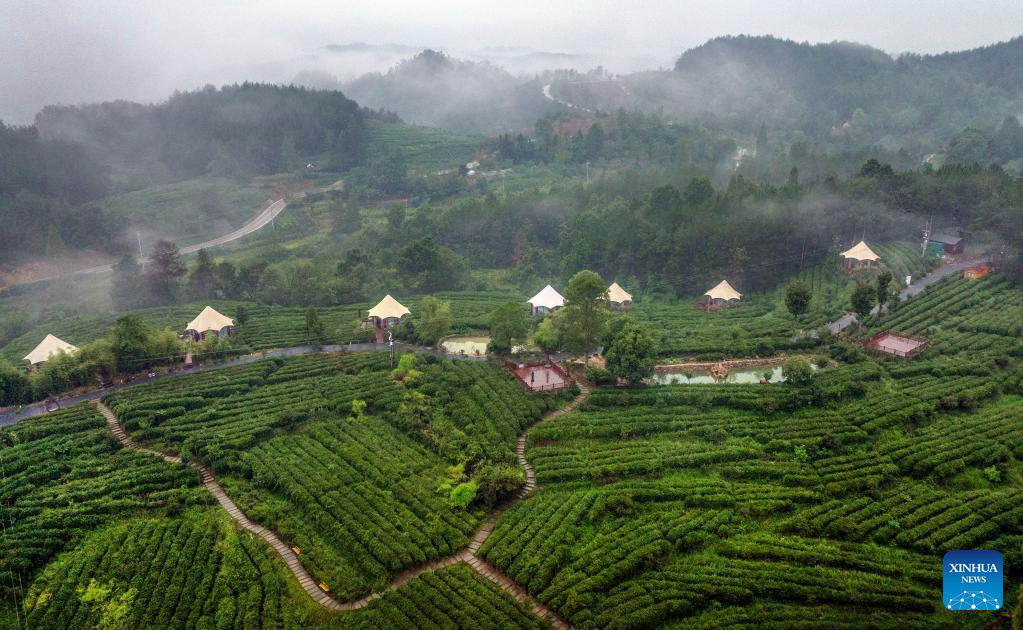
Aerial photo taken on Sept. 8, 2022 shows a tea garden in Ningqiang County, northwest China's Shaanxi Province. As the headwater region of the Hanjiang River, the largest tributary of the Yangtze River, Ningqiang County has closed ten mines and promoted a series of ecological protection projects for environmental protection in recent years. The county has also promoted the production of agricultural products including tea, fruits, vegetables, etc., managing and transforming ecological resources to green economy. (Xinhua/Tao Ming)
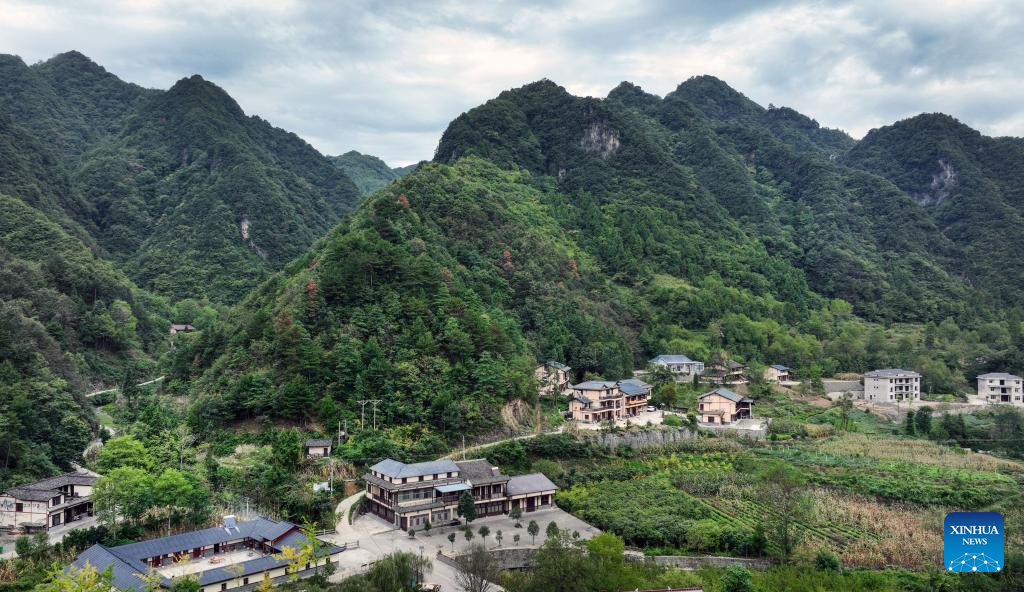
Aerial photo taken on Sept. 6, 2022 shows rural houses in Hanshuiyuan Village in Ningqiang County, northwest China's Shaanxi Province. As the headwater region of the Hanjiang River, the largest tributary of the Yangtze River, Ningqiang County has closed ten mines and promoted a series of ecological protection projects for environmental protection in recent years. The county has also promoted the production of agricultural products including tea, fruits, vegetables, etc., managing and transforming ecological resources to green economy. (Xinhua/Tao Ming)

A woman views bamboo weaving products of Qiang ethnic group at an exhibition hall in Ningqiang County, northwest China's Shaanxi Province, Sept. 7, 2022. As the headwater region of the Hanjiang River, the largest tributary of the Yangtze River, Ningqiang County has closed ten mines and promoted a series of ecological protection projects for environmental protection in recent years. The county has also promoted the production of agricultural products including tea, fruits, vegetables, etc., managing and transforming ecological resources to green economy. (Xinhua/Tao Ming)

Tong Zhengming (1st L), an intangible cultural heritage inheritor, displays bamboo weaving techniques of Qiang ethnic group at a folk custom garden in Ningqiang County, northwest China's Shaanxi Province, Sept. 7, 2022. As the headwater region of the Hanjiang River, the largest tributary of the Yangtze River, Ningqiang County has closed ten mines and promoted a series of ecological protection projects for environmental protection in recent years. The county has also promoted the production of agricultural products including tea, fruits, vegetables, etc., managing and transforming ecological resources to green economy. (Xinhua/Tao Ming)
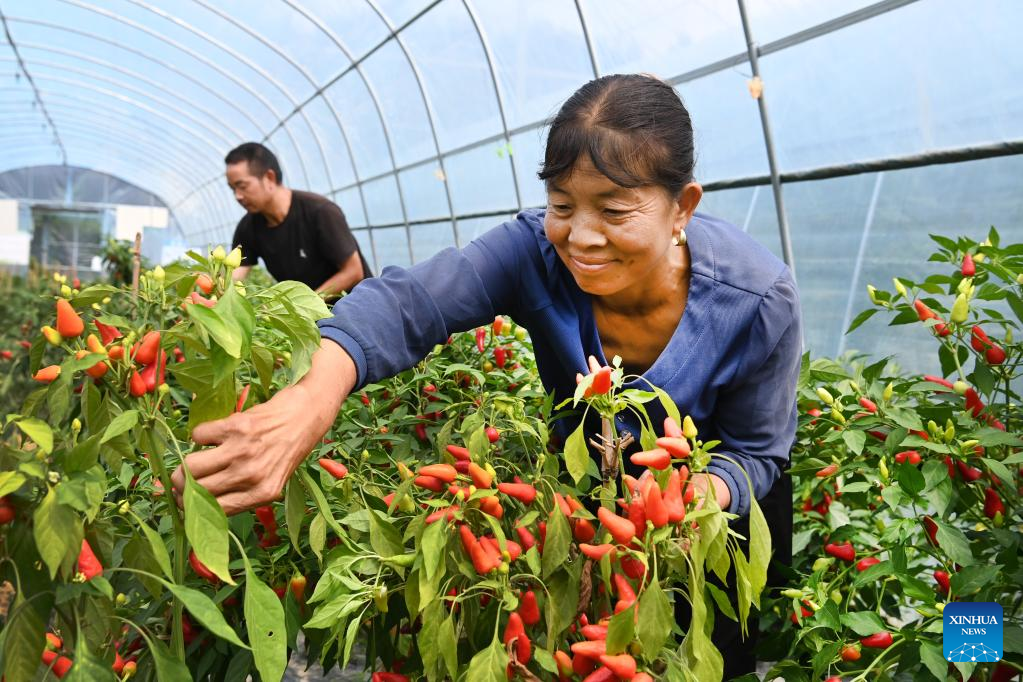
Staff members pick hot peppers in a greenhouse in Ningqiang County, northwest China's Shaanxi Province, Sept. 7, 2022. As the headwater region of the Hanjiang River, the largest tributary of the Yangtze River, Ningqiang County has closed ten mines and promoted a series of ecological protection projects for environmental protection in recent years. The county has also promoted the production of agricultural products including tea, fruits, vegetables, etc., managing and transforming ecological resources to green economy. (Xinhua/Tao Ming)
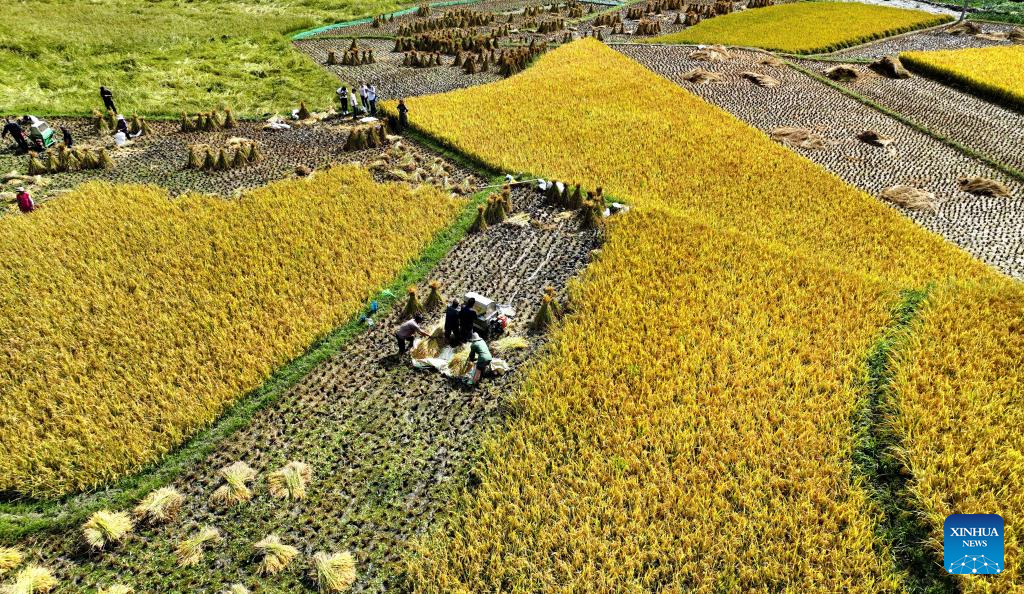
Aerial photo taken on Sept. 6, 2022 shows villagers harvesting rice in Xigou Village of Ningqiang County, northwest China's Shaanxi Province. As the headwater region of the Hanjiang River, the largest tributary of the Yangtze River, Ningqiang County has closed ten mines and promoted a series of ecological protection projects for environmental protection in recent years. The county has also promoted the production of agricultural products including tea, fruits, vegetables, etc., managing and transforming ecological resources to green economy. (Xinhua/Tao Ming)
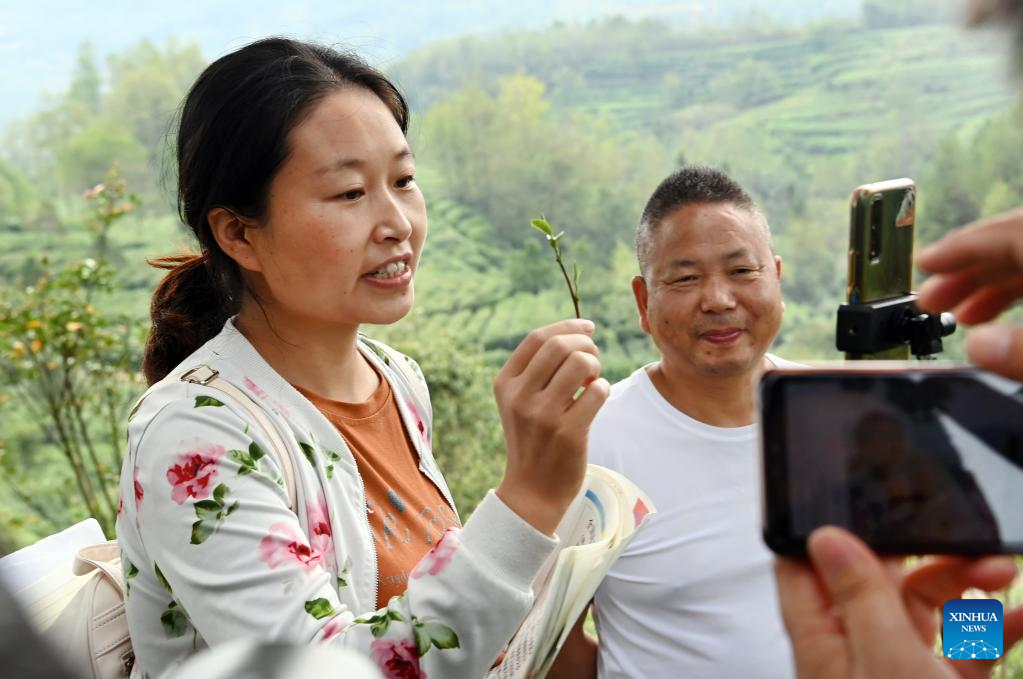
Yang Xiaoying (L) promotes tea products through live-streaming at a tea garden in Ningqiang County, northwest China's Shaanxi Province, Sept. 7, 2022. As the headwater region of the Hanjiang River, the largest tributary of the Yangtze River, Ningqiang County has closed ten mines and promoted a series of ecological protection projects for environmental protection in recent years. The county has also promoted the production of agricultural products including tea, fruits, vegetables, etc., managing and transforming ecological resources to green economy. (Xinhua/Tao Ming)

Aerial photo taken on Sept. 7, 2022 shows forests in Hanjiangyuan scenic area in Ningqiang County, northwest China's Shaanxi Province. As the headwater region of the Hanjiang River, the largest tributary of the Yangtze River, Ningqiang County has closed ten mines and promoted a series of ecological protection projects for environmental protection in recent years. The county has also promoted the production of agricultural products including tea, fruits, vegetables, etc., managing and transforming ecological resources to green economy. (Xinhua/Tao Ming)